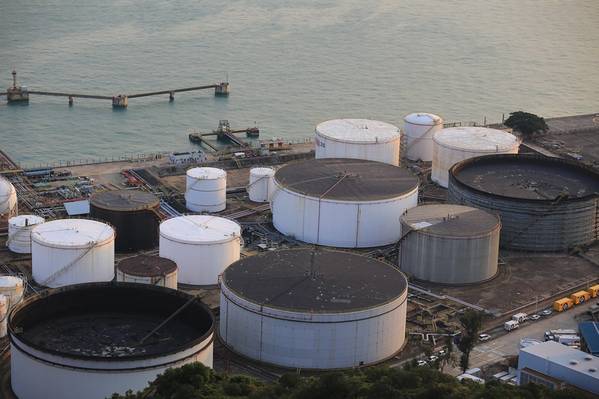
Chinese state oil companies are shying away from Russian oil this month, with two importers halting purchases while two others scaled back volumes as they assess compliance following recent U.S. sanctions on Moscow, multiple trade sources said.
Russian oil supplies to top buyers India and China fell sharply following the January 10 sanctions by the former Biden administration targeting Russian producers Gazprom Neft and Surgutneftegaz as well as insurers and more than 100 vessels to curtail Moscow's oil revenue.
While Russian shipments to the two Asian countries have rebounded after more non-sanctioned tankers joined the trade, China's state-run Sinopec and Zhenhua Oil halted purchases of March-loading Russian oil due to concerns over dealing with the sanctioned firms, sources with knowledge of the matter said.
The scaled-back buying by Chinese state players has weighed on Russian oil prices, eating into Moscow's revenue and putting additional pressure on Russia ahead of a possible ceasefire deal with Ukraine.
A Beijing-based state oil source said his company ceased Russian oil deals as it undertakes more compliance checks and waits for a "clear picture" on a possible Russia-U.S. deal to end the Ukraine war.
The company would resume purchases if talks lead to the U.S. easing or lifting sanctions on Russian oil, the person added, declining to be named or to identify their company as they are not authorised to speak with media.
Surgutneftegaz and Gazprom Neft account for about a third of seaborne shipments of Russia's Far East flagship grade, ESPO blend. The two export about 1.2 million metric tons to China per month combined, or roughly 300,000 barrels per day (bpd).
A trading executive close to a Russian supplier regularly dealing with Chinese state buyers said the companies were shunning oil produced by the newly sanctioned companies.
"They are taking a break for now while contemplating if there are ways to work around," the executive added. China has said it opposes unilateral sanctions.
Independent refiners have stepped in to take up the slack, supporting prices for Russia's ESPO blend at a $2.50-$3 per barrel premium to ICE Brent on a delivered basis for March-loading cargoes, said the executive and two other traders.
More recent transactions of April-loading cargoes were likely done at premiums of just above $2 a barrel, traders said. Prices differ for different oil producers and vessels, they added.
Despite layers of Western restrictions aimed at curbing Moscow's revenue due to its war on Ukraine, Chinese state firms have been key clients of Russian oil, buying roughly half of Russia's shipments to China, or around 1.3 million bpd, with independent refiners taking the remainder.
Russia is by far China's largest oil supplier, making up 20% of crude imports at the world's top importer.
PetroChina, a longstanding ESPO buyer from top Russian producer Rosneft , however, continued with seaborne purchases in March but at lower volumes, two of the sources said.
CNOOC, which regularly buys and trades Russian oil, has also cut back on March-loading volumes, traders said.
In addition to seaborne imports, PetroChina continued lifting 800,000-900,000 bpd of Russian oil, mostly ESPO grade, via pipelines from Siberian fields under a long-term agreement.
Sinopec, Asia's top crude buyer, has been filling in the gap on Russian imports with cargoes from West Africa, the Middle East and Brazil, traders said.
(Reuters)



